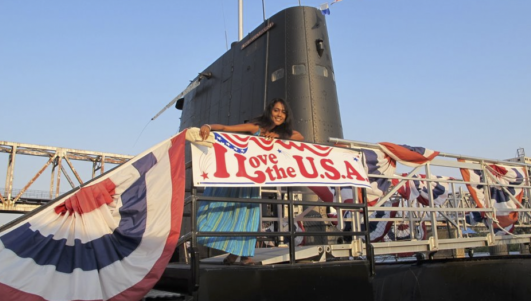By Saroopa Taylor, Ph.D., Program Coordinator, Visiting International Professional Program, Michigan State University
It was 10 years ago, one early morning in Sri Lanka, that I received an email that read: “Congratulations! You have been selected to attend an International Visitor Leadership Program (IVLP) in the United States, ‘On the Road in America from Farm to Table,’ June 23-July 15, 2012.” The message was from the Sri Lanka-based American Center and I was thrilled at the prospect of participating. I could not anticipate just how impactful IVLP would be on my professional and personal journey. But let me go back to the beginning…
I was born and raised in Colombo, the capital city of Sri Lanka. I left for India to study genetics (due in part to my being influenced by the U.S. forensics crime drama TV series, CSI: Crime Scene Investigation). When I returned to Sri Lanka in 2008, I joined the first private molecular diagnostics lab in the country – GENETECH. Not only did I work on many research projects, but I was also involved in various science capacity-building programs and collaborated with local and international universities and institutes. I was given the opportunity to be the coordinator for one of those programs: the annual Ag-Biotech outreach program, which was funded by the U.S. Embassy in Sri Lanka. Researchers, scholars, policymakers, private sector professionals, and students from around the globe participated. The coming together of people from various backgrounds based on a common interest in agricultural biotechnology was a positive development. However, I observed that researchers often had difficulty conveying important scientific knowledge and insights to policymakers and other participants; there seemed to be a gulf that separated scientists and non-scientists.
In 2012, as an IVLP participant, I traveled across the United States with other members of a South and Central Asian delegation. The IVLP was organized by Meridian International Center, and included visits to Arkansas (Global Ties Arkansas), Iowa (Global Ties Iowa / Iowa International Center), northern California (Global Ties Sacramento / Global Ties San Francisco), and Wisconsin (International Institute of Wisconsin). Along the way, the program fostered an understanding of conventional, organic, and genetically engineered crop farming. We were also given a deeper understanding of U.S. agricultural economics, trade, and policy. This experience was invaluable. However, the turning point in my professional life occurred during meetings at Iowa State University where university research into genetically modified food and seeds, and research and technology development in the field of biomass were discussed. It was there that I was first introduced to the term “scientific communicator.”
I completed my Ph.D. at the University of Colombo – Sri Lanka, in collaboration with the University of Toledo-OH in 2017, and was offered a post-doctoral position at Michigan State University (MSU) where I researched plant immunity under abiotic and biotic stress. After completing the postdoc, I was at somewhat of a crossroads. I had gained sufficient academic credentials and could have sought an academic position or a lucrative job in the industry. However, my past experiences in capacity-building programs in Sri Lanka and participation in the IVLP inspired a desire to organize programs around scientific exchange to bridge a gap between scientific and non-scientific communities.

Celebrating the 4th of July in Arkansas. This was one of my favorite memories during my trip. Photo provided by author.
It is for those reasons that I joined the Visiting International Professional Program (VIPP) at Michigan State University in 2022, a Community-Based Member (CBM) of the Global Ties Network. VIPP is housed within International Studies and Programs, where it provides executive education and professional development training for academics, professionals, business leaders, and policy makers around the globe. The work done at VIPP has provided opportunities for many global professionals to realize their potential through short and long-term global executive workshops, as well as federal programs such as IVLP, the Norman E. Borlaug fellowship, the Cochran fellowship, etc.
As a former visiting international professional in the United States and an IVLP exchange alumna, I was drawn to VIPP because of my desire for global community outreach around science and other disciplines. Since joining VIPP in May 2022 as a Program Coordinator, I had the opportunity to work with Global Ties Detroit, partnering as a fellow Michigan-based CBM to organize and deliver programs in Lansing, Michigan. Going from an IVLP participant to an IVLP – CBM program organizer is not something I would have envisioned 10 years ago. These opportunities mean a lot to me personally and bring back memories from my own IVLP experience.
As a researcher and a woman of color from a developing country who has gone through the IVLP program, I believe that I am equipped to relate and understand the needs of participants from a range of backgrounds and who come from marginalized communities. I believe that exchange is important for fostering networks of intellectual and professional development for leaders in their respective fields. Exchange can ultimately foster positive change for communities. My background and experiences have given me the tools to ensure these exchanges happen effectively, and I am indebted to my IVLP for helping to inspire my career.
